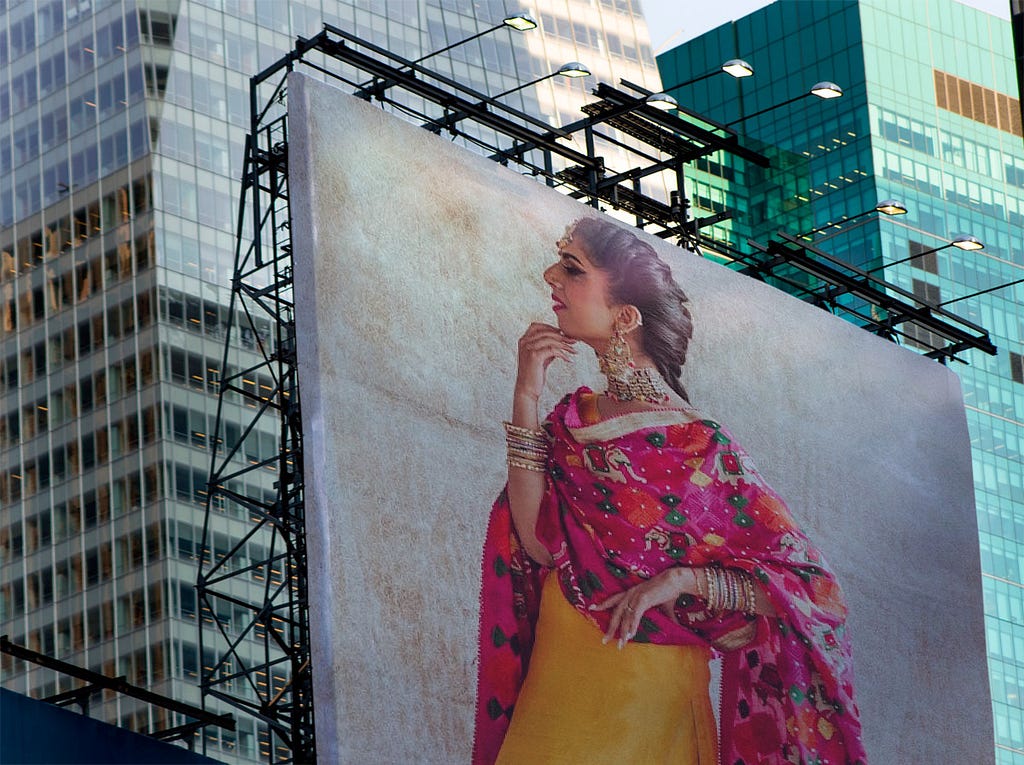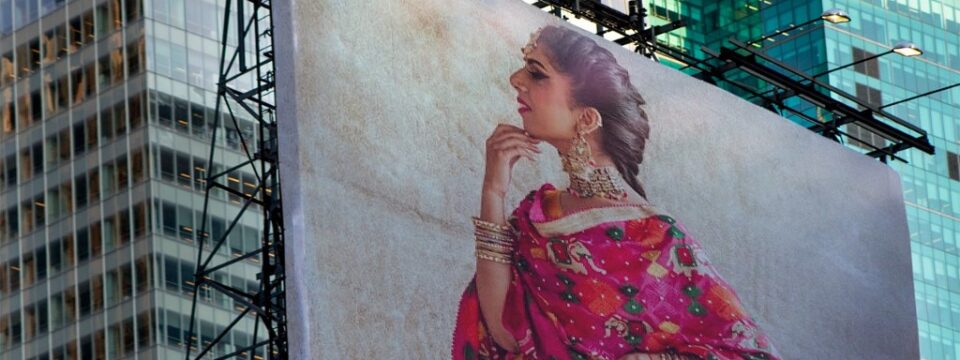
Don’t be afraid to speak your mind! I grew up incredibly shy — my feedback from school teachers was always that they knew I had something to say but wouldn’t ever volunteer my perspective. It’s okay to have opinions, to speak up, and share. People are wonderful and they tend to really love to listen to each other, and uncomfortable moments can be overcome with great conversation.
As a part of my series about leaders helping to make the entertainment industry more diverse and representative, I had the distinct pleasure of interviewing Sukhmani Rayat.
As one of the first female tabla players to emerge from the U.K., she has toured and recorded as a percussionist for years, playing on stage at the 2019 Grammy Awards. Sukhmani was born into a Punjabi immigrant family in the United Kingdom, and grew up in Leeds where she was surrounded by the sounds of her Punjabi Sikh family, the Afro Caribbean community, and the city’s thriving music scene. She now brings her rare understanding of rhythm and percussion to her own music, delivering sultry vocals over deep, driving beats.
Sukhmani has accompanied artists such as Ajeet and Snatam Kaur on tour as a percussionist, where she “brings deep beauty, passion, and artistry to her playing.” In her transition to singing and songwriting, Sukhmani’s music connects with and empowers listeners to be fully and unapologetically themselves.
Thank you so much for joining us in this interview series! What brought you to the career path of being an artist?
Thanks for having me! I have been learning and playing music since I was about 11, so it’s been a part of my life for just about as long as I can remember. I did study literature at university and considered another career path thinking it wasn’t going to be realistic to earn a living doing music, but I was incredibly fortunate to meet some brilliant artists who asked me to tour with them as a percussionist right after I graduated. It snowballed from there and I never looked back!
Can you describe how you are helping to make popular culture more representative of the US population?
To be honest, while having more diverse faces in popular culture is important, ultimately the changes required to fully include all people in a thriving culture requires investment in those communities which is not something I personally have control over! I do think it’s powerful to see more diversity in popular culture. When growing up it wasn’t the norm to see Punjabi faces in this realm, and having the ability to be here as an example to young Punjabi people is a privilege. This, however, just isn’t enough to ensure that American artistic culture is truly representative of its population. I would love to see MASSIVE public investment into the arts, education, housing etc to make sure that all people have the basic needs required to develop themselves artistically and intellectually.
As an insider, this might be obvious to you, but I think it’s instructive to articulate this for the public who might not have the same inside knowledge. Can you share three reasons with our readers about why it’s really important to have diversity represented in Entertainment and its potential effects on our culture?
- One reason would be to show people from under-represented communities that they belong wherever they want to be, whether that’s in music, arts, or whatever they choose!
- Once somebody from an under-represented community enters the entertainment industry, it gives a level of influence to uplift other voices from those communities, allowing them to carve out a space for them in popular culture.
- Another reason is being able to use our platforms to illuminate systemic injustices that create inequality in this realm in the first place.
Can you recommend three things the community/society/the industry can do to help address the root of the diversity issues in the entertainment business?
Going back to my first answer, I think the real roots of the systemic problems that marginalized communities face is ultimately a matter of political power and resource distribution. I would love to see communities organizing themselves and becoming politically active to advocate for policies and programs that would help meet people’s material needs so that they can participate in our culture completely.
I think the industry could be funding social programs to teach music and arts to kids from these marginalized communities, and also use their resources to lobby the government to spend on social programs that support the arts. Also, companies in the industry could conduct wholesale reviews on their own practices to unpack how systemic racism lives within their organisations.
How do you define “Leadership”? Can you explain what you mean or give an example?
Leadership is one person’s ability to inspire actions in others. I think good leaders are those who demonstrate true care and commitment to the people following them and are responsive to their concerns and ideas. Ultimately, I think empowering people to think for and lead themselves is true leadership!
What are your “5 things I wish someone told me when I first started” and why. Please share a story or example for each.
- Take extra care of your mind and body — especially on tour! I passed out on stage right after a performance before because I was running on empty. I think it’s really important to have fun and play your heart out, but it’s not effective if you’re not taking care of your basic needs, and it’s not always obvious to do so when you’re touring and having a great time!
- Trust your gut! Whether it’s about the BPM of a song, who you want to work with, who you let into your space, I think your intuition can be your best friend as an artist and it’s important to let it be loud! Also trust the process and your team deeply! It truly takes an army to make a record or make a show happen, and being able to love and trust everyone involved makes for a far more wholesome experience.
- Don’t be afraid to speak your mind! I grew up incredibly shy — my feedback from school teachers was always that they knew I had something to say but wouldn’t ever volunteer my perspective. It’s okay to have opinions, to speak up, and share. People are wonderful and they tend to really love to listen to each other, and uncomfortable moments can be overcome with great conversation.
(I could only think of 3, I hope that’s okay!)
You are a person of enormous influence. If you could inspire a movement that would bring the most amount of good to the most amount of people, what would that be? You never know what your idea can trigger. 🙂
I think what would bring the most amount of good to the most amount of people would be putting power and resources in the hands of the vast majority of people who do the work to make our society function! I’d love to be able to inspire a movement that allows people to believe that they are truly capable of ANYTHING. I think there are so many things that can make life feel overwhelming, and can make us feel powerless or helpless. But I would love to be able to inspire anyone to believe in themselves that little bit more. I think real, meaningful change within our society can’t happen without self belief, so starting there would be great.
Can you please give us your favorite “Life Lesson Quote”? Can you share how that was relevant to you in your life?
I was probably about 18 years old and was preparing for an important Tabla concert where I was going to be performing as part of a student showcase before my teacher and his teacher would take to the stage. I had practiced for hours and felt extremely prepared for the performance, but during the show there was a section where I COMPLETELY bombed; like, I didn’t just mess up what I was playing, I went humongously off time and drew a blank of what I was meant to be playing. Both my teachers along with a whole host of musicians and friends were in the audience, and though I recovered in the moment, and the rest of the performance went well, I couldn’t get over the mistake I had made. After the show I found it difficult to approach my teachers, but when I finally had the courage to do so, they preempted my apology, greeted me with kindness, and told me: “Without mistakes there is no music.” Not only did it shift my perspective then and there, but it’s something I’ve taken with me ever since. None of this is about being flawless or perfect, and there is actually so much beauty and freedom in letting go of that expectation.
How can our readers follow you on social media?
I’m mostly active on instagram @sukhmanimusic, but I try to post as much as possible on other platforms too. You can find all my socials here: https://linktr.ee/SukhmaniMusic
This was very meaningful, thank you so much!
How Sukhmani Rayat Is Helping To Make the Entertainment Industry More Diverse and Representative was originally published in Authority Magazine on Medium, where people are continuing the conversation by highlighting and responding to this story.
